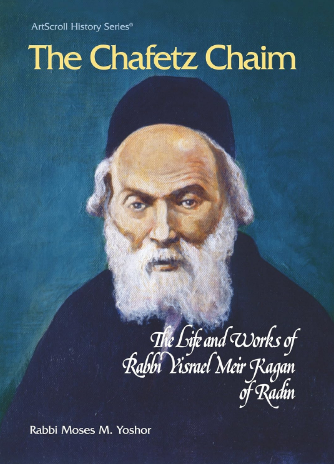Introduction:
In a world filled with noise and distraction, the teachings of Rabbi Israel Meir Kagan, famously known as the Chafetz Chaim, shine like a guiding star. His profound wisdom on ethical living resonates deeply within Jewish communities and beyond. Many today seek to embody his principles, especially in this era where words can wield immense power—both for good and ill. The picture of Chafetz Chaim is more than just an image; it symbolizes a legacy dedicated to kindness, integrity, and a commitment to uplifting one another through our speech and actions. Join us as we explore who he was, his invaluable teachings on ethical living, the significance of Lashon Hara (evil speech), and how his life continues to inspire generations today.
Who was the Chafetz Chaim?
Rabbi Israel Meir Kagan, better known as the Chafetz Chaim, was born in 1838 in what is now Belarus. From a young age, he demonstrated an extraordinary commitment to Torah study and ethical behavior.
His life’s work centered on teaching others how to live according to Jewish law while emphasizing the importance of moral conduct. The title “Chafetz Chaim,” meaning “one who desires life,” reflects his belief that true life comes from living ethically.
Throughout his lifetime, he authored several influential texts, including “Chafetz Chaim” on the laws of speech and “Mishnah Berurah,” a guide for observant Jews. These works continue to shape Jewish thought regarding ethics and integrity today.
The essence of his teachings transcends time and geography. His insights resonate with anyone striving for personal growth through responsible communication and compassionate living.
His Teachings on Ethical Living
The Chafetz Chaim emphasized the significance of ethical living as a foundation for personal and communal growth. His teachings encourage individuals to reflect deeply on their actions and the impact they have on others.
He believed that every interaction should be guided by respect, kindness, and integrity. This approach fosters harmony within families, communities, and beyond.
Central to his philosophy is the idea that words carry immense power. He argued that we must carefully choose our language to uplift rather than harm those around us.
His books serve as timeless resources for examining one’s character and behavior in daily life. By embodying these principles, followers can cultivate an environment rich in compassion and understanding.
The essence of his message resonates today more than ever; ethical living remains essential in navigating modern challenges while maintaining strong relationships with others.
The Importance of Lashon Hara (Evil Speech) in Judaism
Lashon Hara, or evil speech, holds a central place in Jewish ethics. It refers to gossip and slander that can harm another’s reputation. In Judaism, this concept goes beyond mere words; it emphasizes the impact of what we say on human relationships.
The Torah explicitly warns against speaking ill of others. Such speech is not just a social faux pas but a serious moral issue. The repercussions extend beyond the spoken word—once shared, harmful comments can ripple through communities.
Practicing restraint in our conversations fosters respect and empathy. By choosing kindness over gossip, individuals contribute to a more supportive environment. This commitment to ethical communication reflects deeply rooted values within Judaism that prioritize peace and harmony among people.
When we consciously avoid lashon hara, we engage with others positively and uplift their spirits rather than tear them down.
Impact and Legacy of the Chafetz Chaim
The Chafetz Chaim, Rabbi Israel Meir Kagan, left an indelible mark on Jewish thought and ethics. His commitment to the principles of ethical speech transformed how communities approached communication.
His books, particularly “Chafetz Chaim,” serve as foundational texts in the realm of Lashon Hara. They illuminate the dangers of harmful speech and encourage a culture rooted in respect and kindness.
Beyond literature, his influence extended into educational institutions. Many yeshivas incorporate his teachings into their curricula, shaping future generations with an emphasis on moral integrity.
Communities around the world continue to honor him through annual events focused on ethical living. The reverence for his wisdom transcends borders and languages.
His life story inspires countless individuals striving for personal improvement. The legacy he created is not just a historical account; it’s a living guide that resonates today.
Applying the Chafetz Chaim’s Teachings in Modern Times
Applying the Chafetz Chaim’s teachings today is more relevant than ever. In a world saturated with social media and instant communication, his principles on speech can guide us toward responsible interactions.
Mindfulness in our words can transform conversations. Before speaking or posting, we should ask ourselves: Is it true? Is it kind? This simple practice encourages respect and empathy among individuals.
Moreover, educating our children about the dangers of lashon hara fosters an environment of integrity. Teaching them to choose their words wisely instills values that extend beyond mere etiquette.
In workplaces and community settings, promoting ethical discourse not only enhances relationships but also contributes to a supportive atmosphere. Encouraging open dialogue while discouraging gossip creates spaces where people feel valued and heard.
By integrating these timeless lessons into daily life, we can cultivate a culture rooted in kindness and understanding.
Inspiration from the Life of the Chafetz Chaim
The Chafetz Chaim’s life is a testament to dedication and humility. Born in 1838 in Poland, he rose from modest beginnings to become one of Judaism’s foremost authorities on ethics.
His daily routine was marked by simplicity and devotion. He devoted hours to studying Torah, emphasizing the importance of spiritual growth over material wealth. This commitment inspired countless followers.
The Chafetz Chaim also advocated for kindness and compassion in all interactions. His teachings emphasized that our words hold immense power—both for good and ill.
By promoting ethical living through his writings, such as “Chafetz Chaim” itself, he provided practical guidance that resonates even today. His legacy encourages individuals to aspire toward moral excellence while fostering community harmony.
This inspiration stems not only from his scholarly achievements but from the way he lived out his values each day—a true model for aspiring ethical leaders everywhere.
Conclusion:
The Chafetz Chaim remains a monumental figure in Jewish history. His teachings on ethical living continue to resonate today, guiding individuals toward a more mindful existence. The principles he laid out emphasize the significance of speech and its powerful impact on community dynamics.
His legacy is not just about rules but about fostering compassion and understanding among people. By integrating his insights into our daily lives, we can cultivate an environment rooted in respect and kindness.
For many, finding a picture of the Chafetz Chaim serves as a reminder of these values. It inspires us to reflect on our actions and their implications for those around us. As we navigate modern challenges, embracing his lessons can lead to profound personal growth and communal harmony.
The journey towards ethical living is ongoing, yet the teachings of the Chafetz Chaim light our path forward with clarity and purpose.


